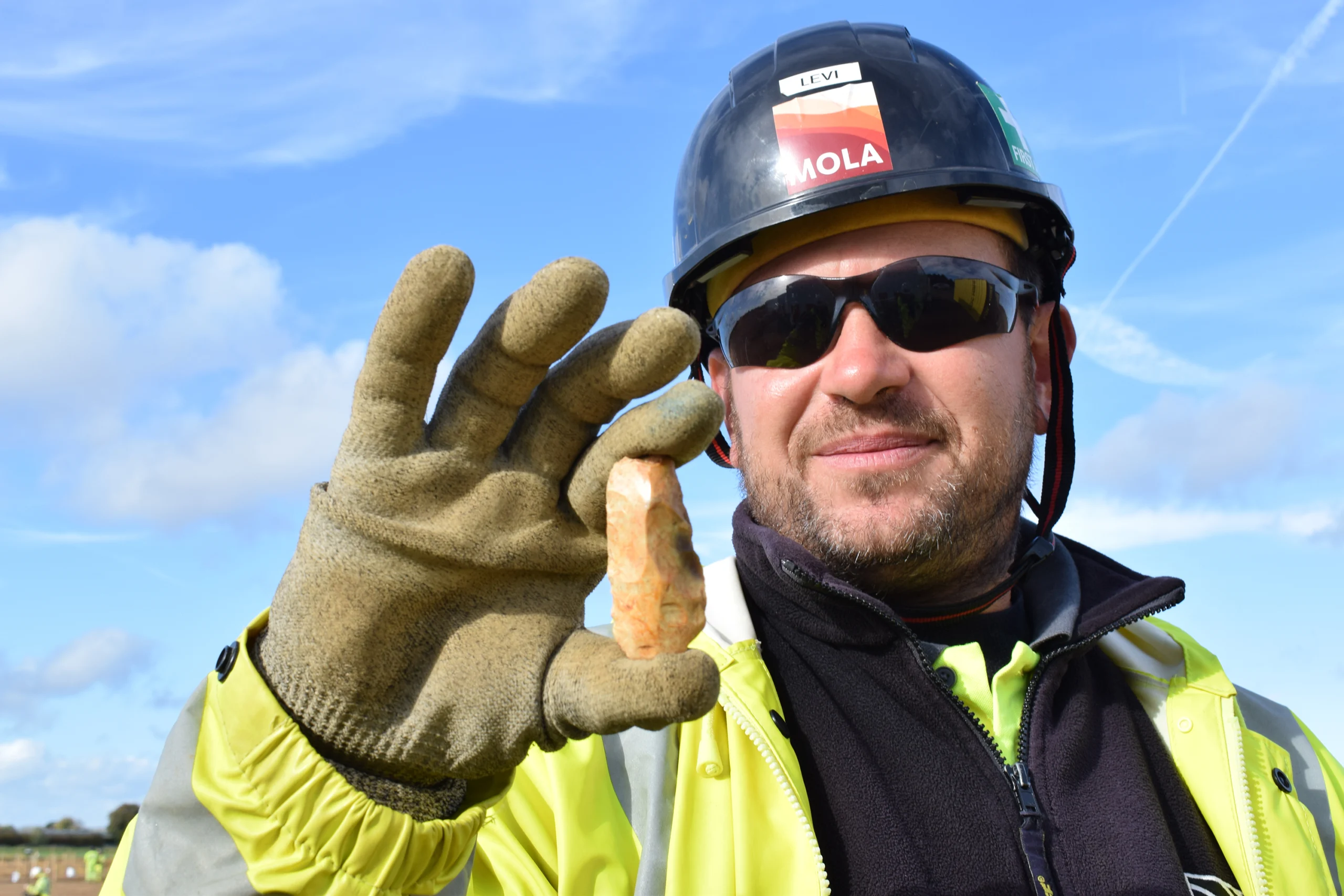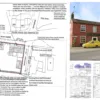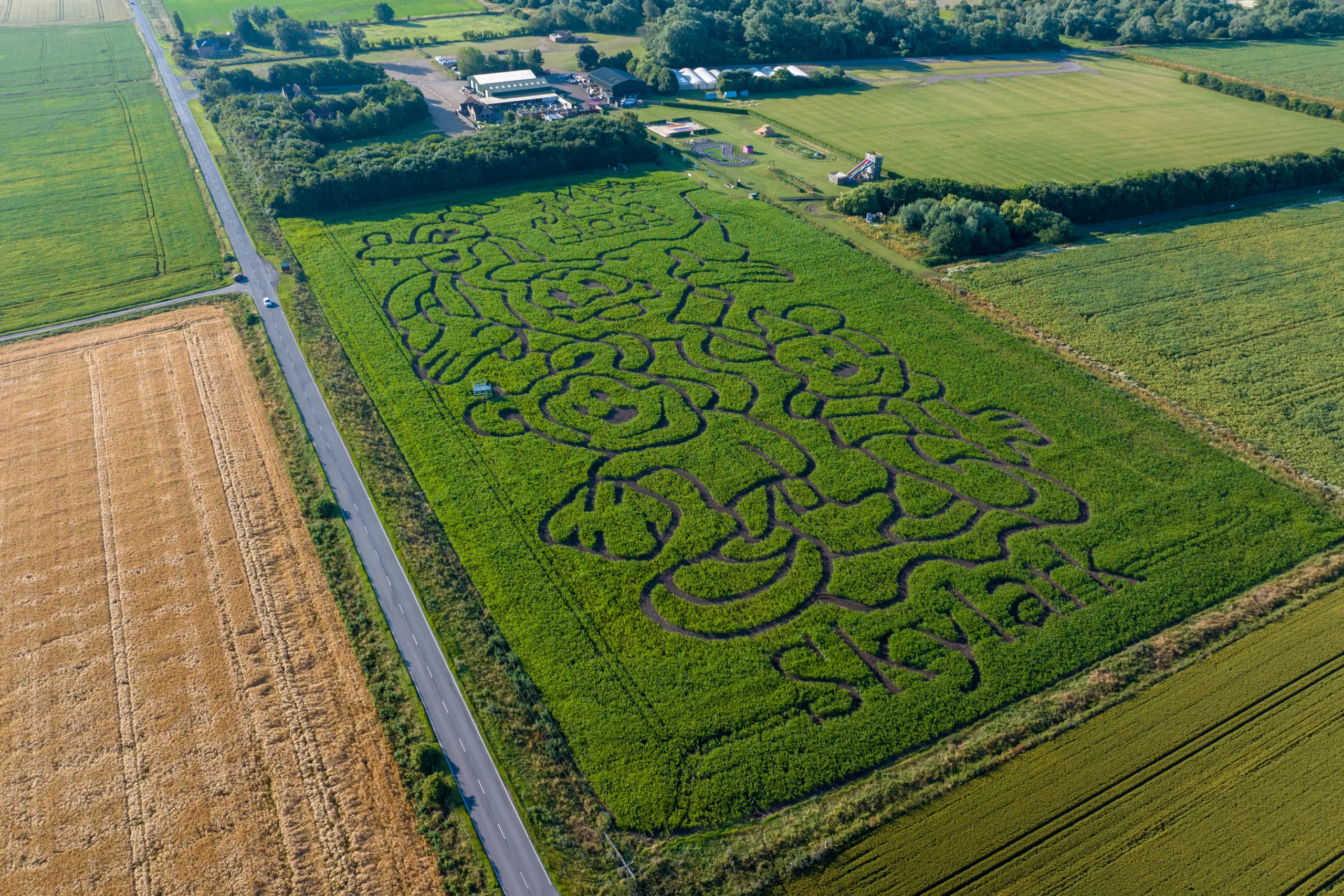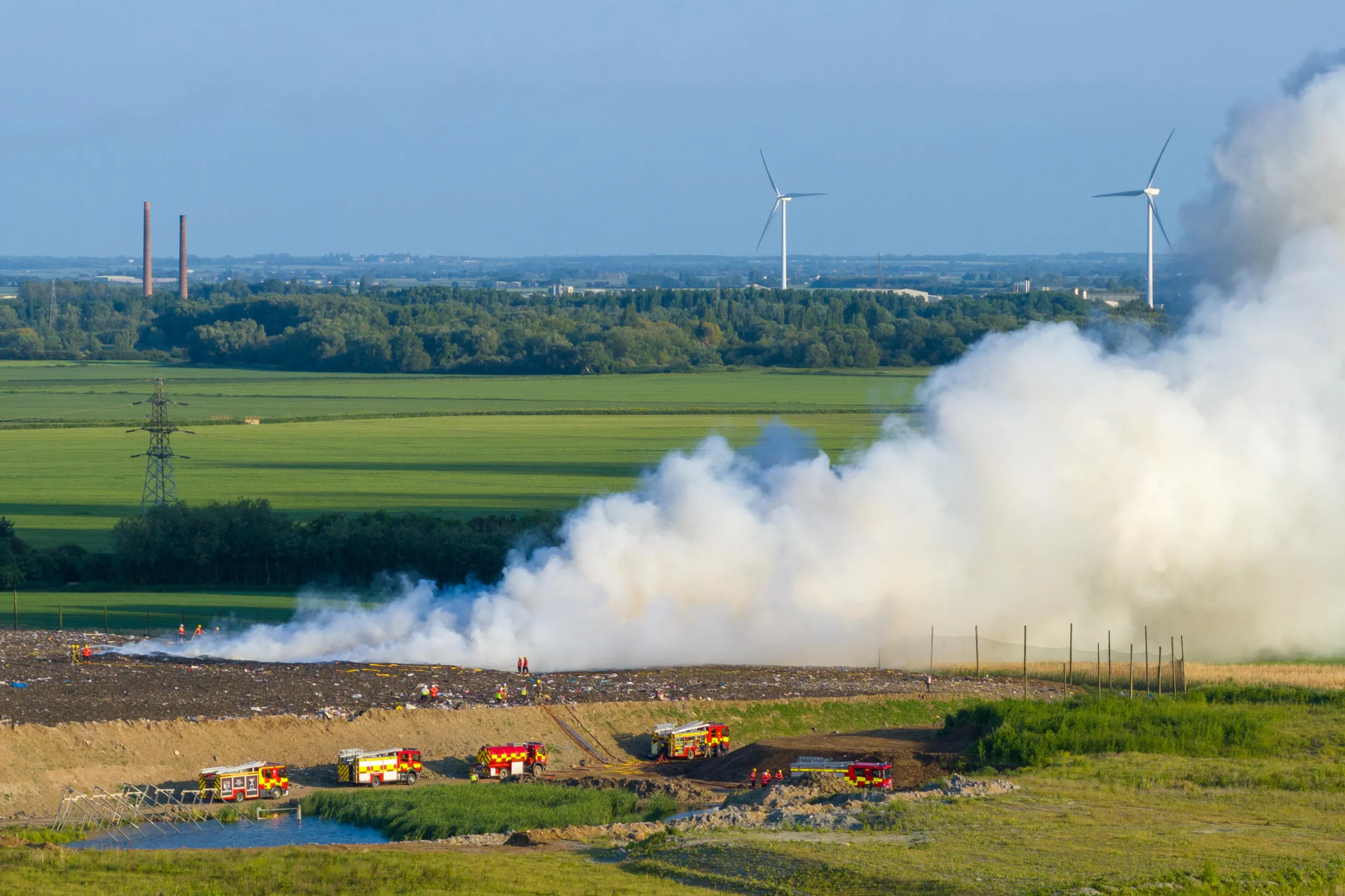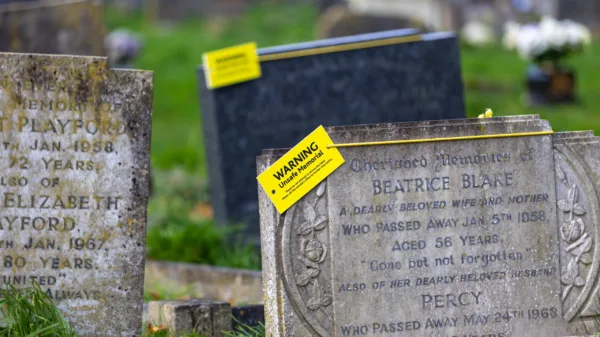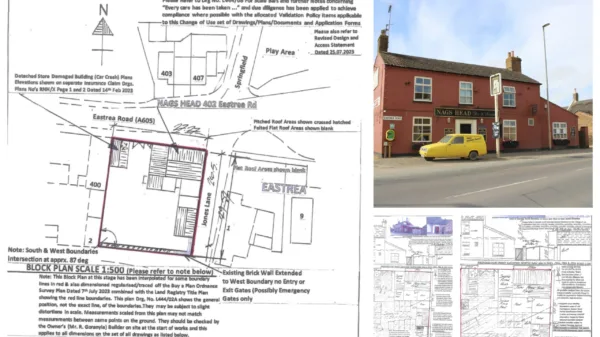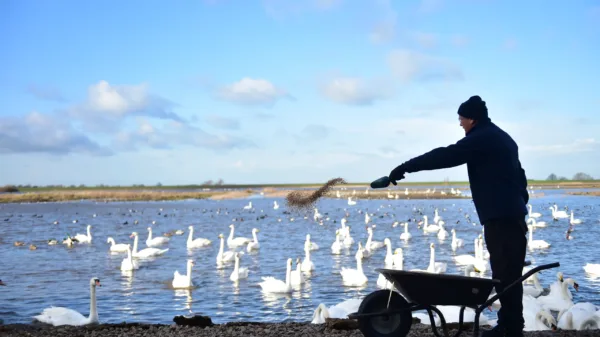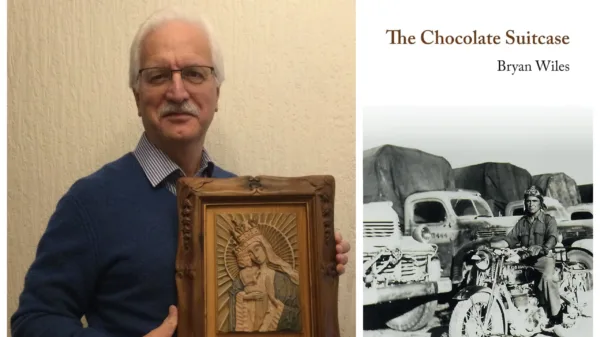Excavations ahead of the £950m A428 Black Cat to Caxton Gibbet improvements have revealed a Mid-Late Iron Age (300 BC – 43 AD) farmstead with evidence of a huge communal feast.
An area the size of 89 football pitches is being investigated as part of the proposed A428 scheme.
Archaeologists from MOLA (Museum of London Archaeology) uncovered a pit full of animal bones and pottery vessels, as well as burnt stones – evidence of a large fire around which local communities would have gathered.
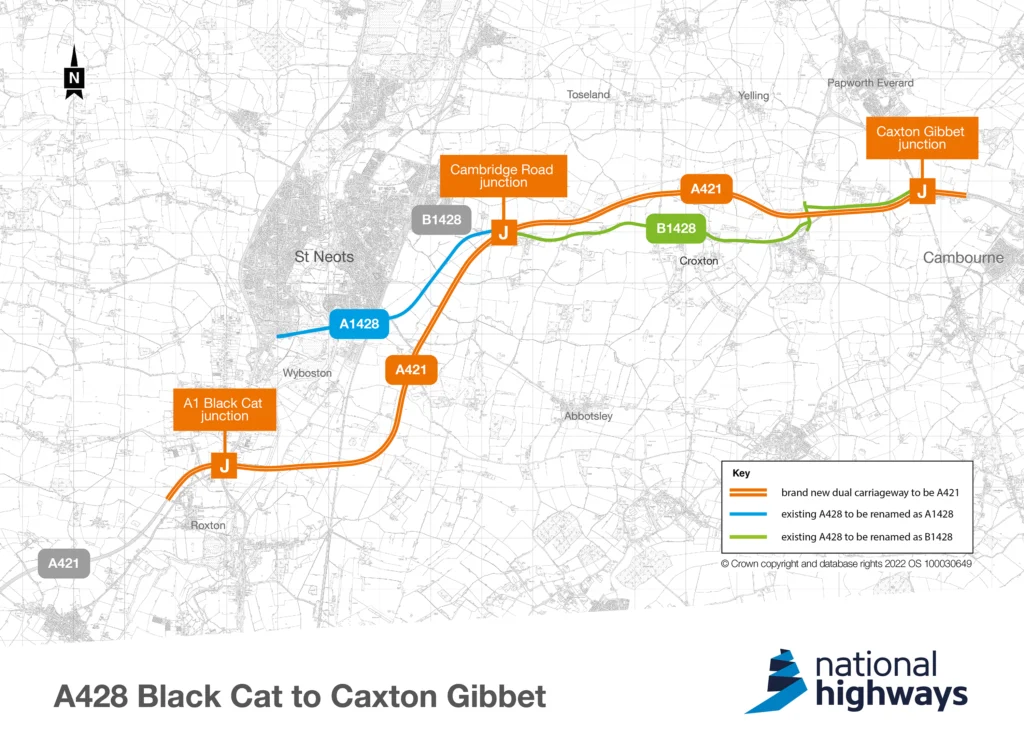
Route Map showing the proposed A428 scheme ©NationalHighways
Archaeologists say that whilst having a seemingly uninteresting appearance, this find provides a wealth of information.
A MOLA spokesperson said “In southern Britain during the Iron Age, local communities did not always live together in large settlements, so feasts marking special events were really important times for communities to get together and celebrate.
“These central meeting sites would also be an opportunity to exchange gifts, trade, and sometimes carry out ritual activities.”
In Iron Age Britain people generally ate meats such as beef, mutton, and pork.
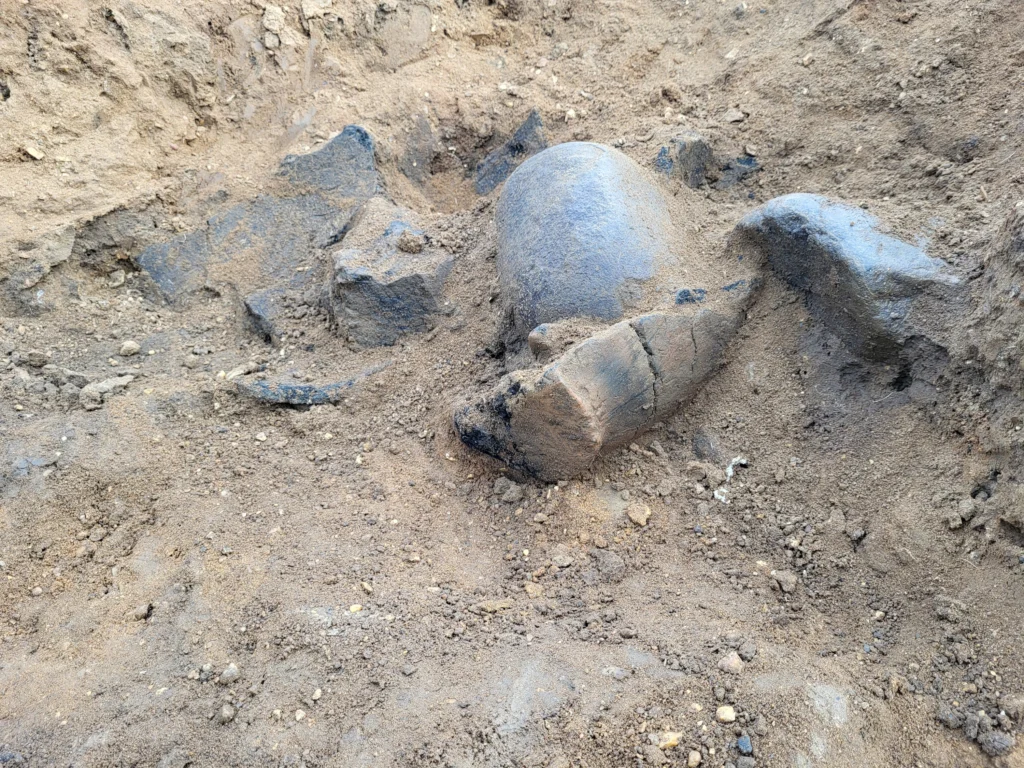
Pottery vessels and burnt stone from feast pit ©MOLA
However, a full analysis of the animal bones, pottery, and possible environmental evidence (such as burnt grains) will now be made by specialists. This will help archaeologists answer more specific questions about the feast.
Towards the end of the Iron Age new ingredients such as olives and coriander were being imported into Britain and the MOLA believes so this discovery has the potential to highlight the changing diet of ancient peoples.
The pottery vessels could also identify trading or gift exchanges from across the channel.
The discovery of an Iron Age feast builds upon preliminary A428 excavations, which took place in the summer of 2021.
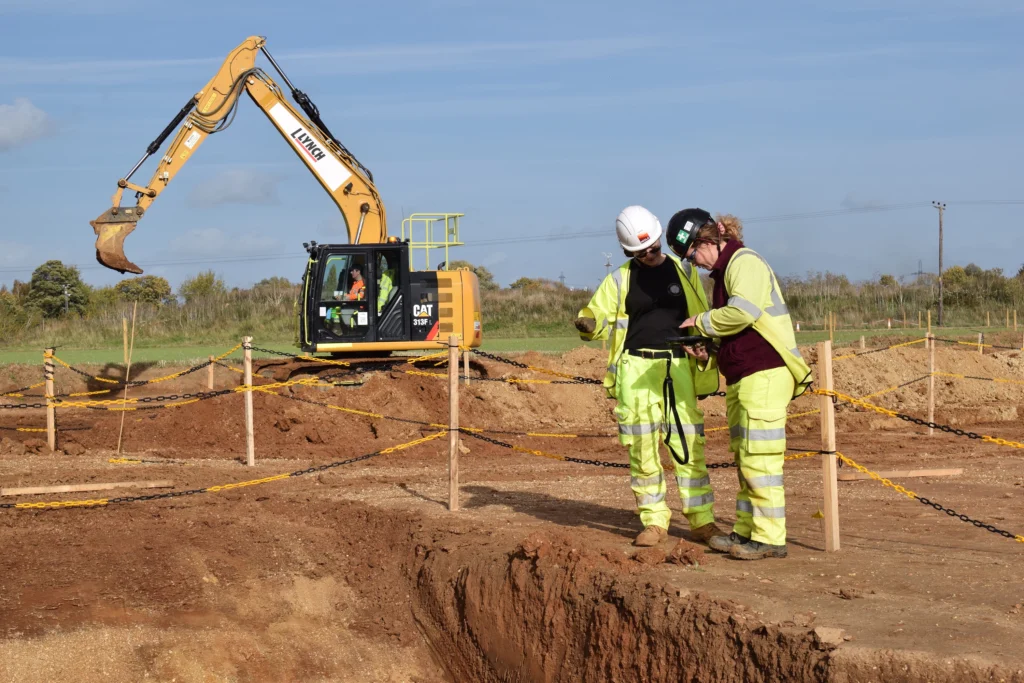
MOLA Archaeologist at work ©MOLA
Here, at another nearby settlement, possible evidence for late Iron Age and early Roman beer-brewing was uncovered.
Specialists examining charred grains from an oven found large quantities had been left to germinate (sprout shoots). The only known use for these sprouted grains would have been to make malt – the first step in the beer brewing process.
Archaeologists from MOLA are continuing work across the route of the proposed National Highways A428 Black Cat to Caxton Gibbet improvement scheme.
A further 30 different areas are under investigation, collectively measuring over 625,700 sq. metres, the size of 89 football pitches, and spanning more than 10 miles within the two counties.
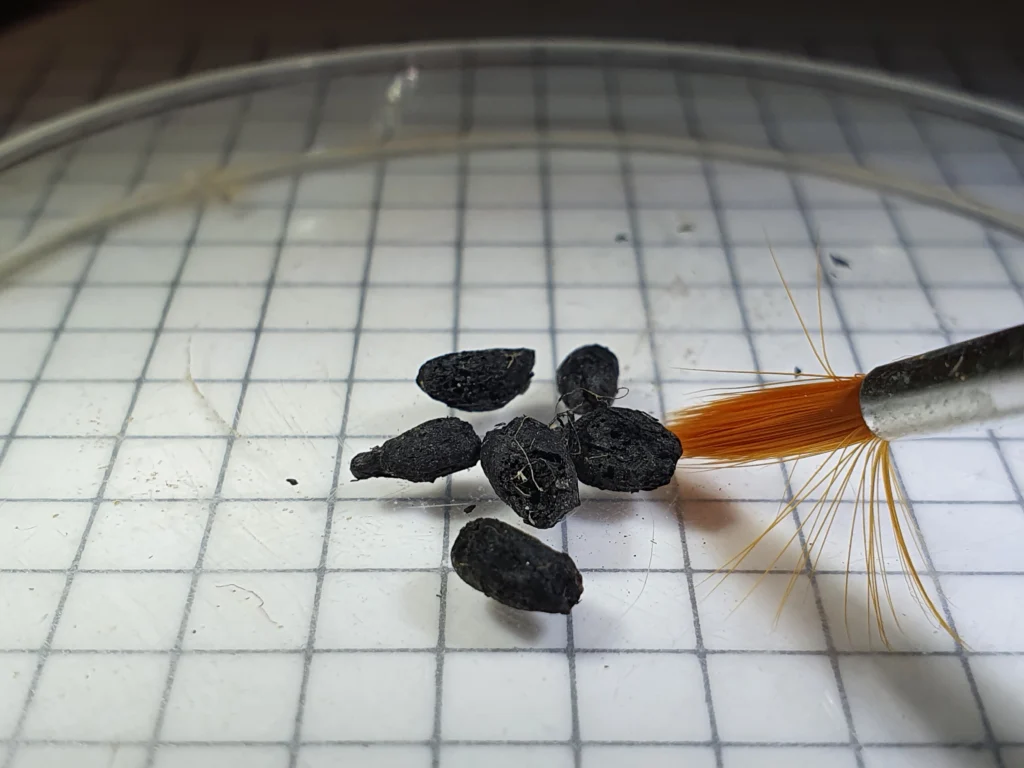
Burnt grains showing evidence of beer brewing ©MOLA
Gary Brogan, MOLA project director said: “The A428 excavations are an amazing opportunity, we are getting to see the big picture of life in the past across the region.
“Uncovering an Iron Age feast and possible evidence for beer brewing in the early Roman period, is transforming our understanding of the past communities of Bedfordshire and Cambridgeshire, from what they were eating and drinking, to how they may have traded both locally and across the Roman empire.”
Lorraine Bennetts, senior project manager at National Highways, said: “We’re really excited by the fascinating discoveries being made by MOLA.
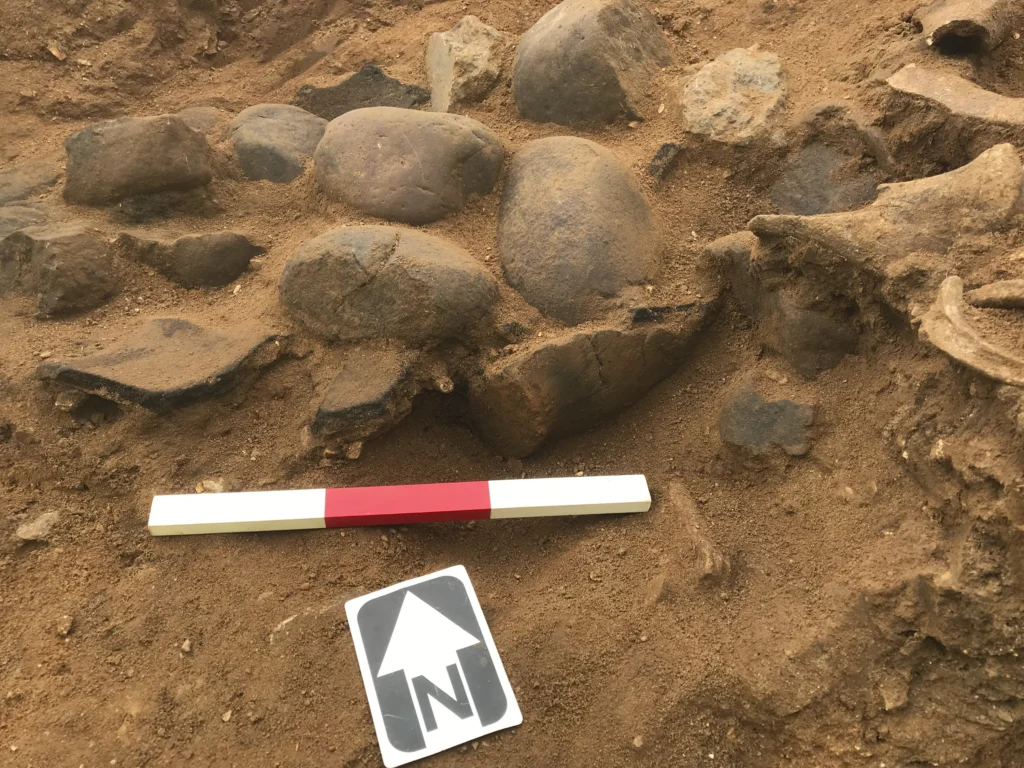
Feast pit close up showing burnt stones and broken pottery vessels ©MOLA
“It’s been wonderful to see how the A428 Improvements are revealing the stories of the people living in Bedfordshire and Cambridgeshire thousands of year ago, which we hope will inspire and intrigue local residents in the present day.
“The uncovering of this Iron Age feast is just the beginning, and we look forward to sharing more information as the dig progresses.”

